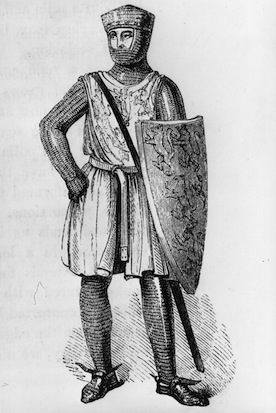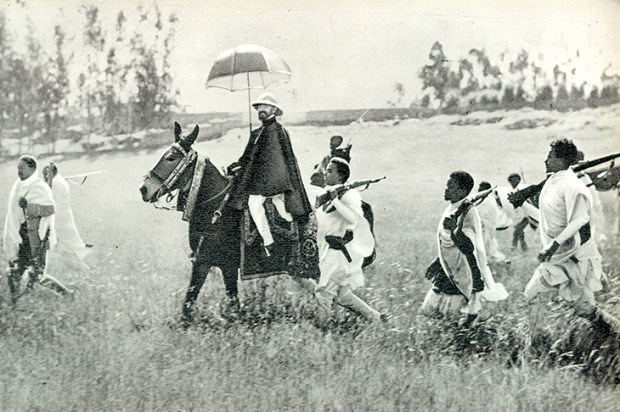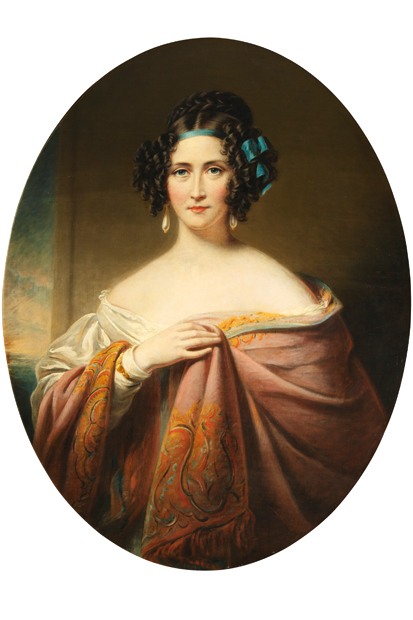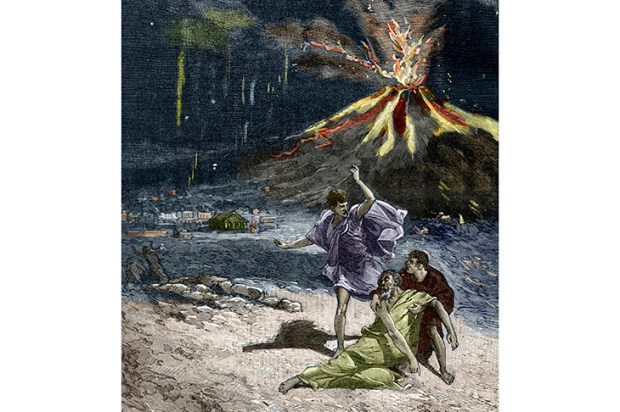In February 1861 a 21-year-old French medievalist called Paul Meyer walked into Sotheby’s auction house near Covent Garden. He had been sent by the Bibliothèque Imperiale to bid on their behalf at the sale of the Savile collection of rare manuscripts, and though he did not have the funds to compete with the big players at the auction, he did at least manage to see, before it disappeared for the next 20 years into the insatiable collector’s maw of Sir Thomas Phillipps, a rhymed verse chronicle of 19,000-odd lines in Norman French that was to become the great obsession of his life.
The rediscovery of the History of William Marshal, as the manuscript was eventually named — Thomas Asbridge’s guess is that it had not been read in 600 years — makes an engaging and nicely told opening to a book that can never quite deliver on its promise. There is no doubt that Meyer’s find offered a fresh and vivid insight into Anglo-Norman history of the late 12th and early 13th century; but whether you can hang a history of the rise and fall of the early Angevin empire on such a life or make good the hyperbole of this book’s subtitle is another matter.
William Marshal’s is a good story. He rose from relative obscurity by dint of courage, luck, ambition, knightly prowess, marriage and an odd mix of steadfastness and calculation to become one of the great magnates of England — but whatever else he was he was not ‘the power behind five English thrones’. In old age he played an important if equivocal role in the baronial revolt against John and the minority of Henry III, but for most of his life he was a bit-player on the Angevin stage, a survivor rather a shaper of history, a man whose best days were not on the battlefield or in the council chamber but on a travelling tournament circuit that Asbridge makes sound like some medieval cross between the Men’s ATP World Tour and a particularly violent clash of Old Firm fans.
The real difficulty, though, with The Greatest Knight — quite apart from any doubts about the reliability of a source manuscript that was commissioned as an act of filial piety — is that for all the rich detail we do not know enough about a man like William Marshal to carry a book of this sort. Asbridge is the first to admit that Marshal’s ‘interior life’ remains largely a mystery, but there are huge chunks of his subject’s external life too about which so little is known that all one is left with is a frustrating stream of ‘must haves’, ‘perhapses’, ’seeminglys’, ‘possiblys’, probablys’ and ‘might well haves’. ‘The small entourage he had assembled by 1179 seems to have been disbanded by the time of his exile in 1182,’ Asbridge writes typically, of Marshal’s journey to the Holy Land — one of the key episodes in his life and mythology:
It is quite possible that he was accompanied by only one or two servants…. No detailed record of Marshal’s journey eastwards has survived, but it is almost certain that he would have sailed to Palestine…. William may have embarked from a Channel port, or perhaps more likely, from a southern-French centre of pilgrim traffic like Marseille.
This kind of thing is hardly Asbridge’s fault — he is more a victim of his own scholarly scruples than anything else — but there are times here when it feels rather like watching a TV soap in which the actor playing the main character has died but the cast goes on talking about him in the hope that we won’t notice. It does not help that the great Crusader knight seems to have missed out on everything from the Lionheart’s Third Crusade to the humiliation of Bouvines; but until about page 260 and the disastrous reign of King John it is hard not to feel that we could have had the same book about the Angevin empire of Henry II and his ferocious children without so much as a mention of William Marshal.
In fact the biography only fully succeeds in these last chapters, where the material is both richer and more detailed, and the author’s claims for the importance of his subject grow more convincing. There remain all the usual questions over exact motives and loyalties. But Asbridge draws a fine picture of Marshal’s final grim days, and of the infinite pains that a man whose whole life had been steeped in violence took over the care of his eternal soul. The medieval world of a thousand church memorials — with their inimitable mixture of worldly boast and religious bribe, of heraldic pomp, human frailty and rare flashes of tenderness — at last comes touchingly to life.
Got something to add? Join the discussion and comment below.
Get 10 issues for just $10
Subscribe to The Spectator Australia today for the next 10 magazine issues, plus full online access, for just $10.
Available from the Spectator Bookshop, £16 Tel: 08430 600033. David Crane’s latest book, Went the Day Well: Witnessing Waterloo, is published later this month.
You might disagree with half of it, but you’ll enjoy reading all of it. Try your first month for free, then just $2 a week for the remainder of your first year.














Comments
Don't miss out
Join the conversation with other Spectator Australia readers. Subscribe to leave a comment.
SUBSCRIBEAlready a subscriber? Log in